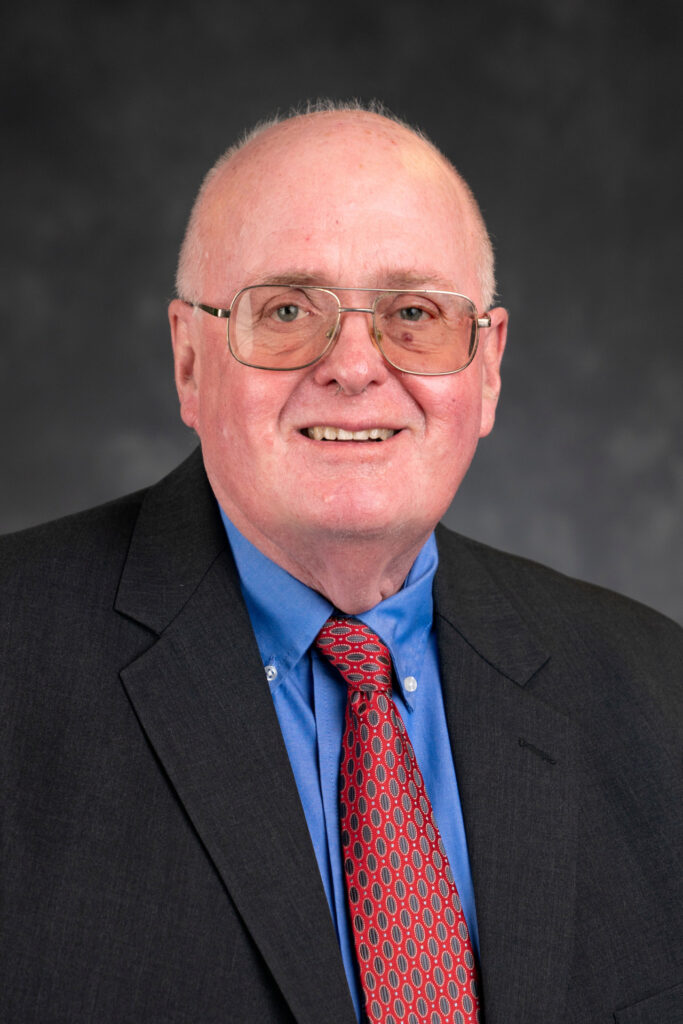Nobel Peace Prize participant addresses role of economics in climate change-related agricultural challenges
McCarl says need for agricultural economic strategies continues to grow

An internationally renowned economist from the Texas A&M College of Agriculture and Life Sciences explained how economists have an increasing opportunity to help the agricultural industry find and strengthen its understanding of ways to maintain productivity.
Bruce McCarl, Ph.D., University Distinguished Professor in the Department of Agricultural Economics, presented on this topic in his Fellows Address at the Agricultural and Applied Economics Association, AAEA, annual meeting in New Orleans. McCarl, a participant in the Intergovernmental Panel on Climate Change that was awarded the 2007 Nobel Peace Prize, gave his address on July 30 to approximately 1,200 agricultural and applied economists from across the world.
The presentation, “Climate Change — What Do We Do About It? Economic Issues in Considering Agricultural Adaptation and Mitigation,” addressed agricultural vulnerabilities related to climate change and economics’ role in finding preventive agricultural measures to lessen those vulnerabilities and capitalize upon new opportunities.
Preparing agriculture for climate challenges
McCarl said climate change could make the future of agriculture more challenging by causing hotter temperatures, lowering crop and livestock productivity, and changing pest activity. He also said producers could expect shifts in regional advantages, slower technical progress and increased water scarcity and competition.
“These factors will impact the future productivity and profitability of the agricultural industry,” he said. “We need to stay serious about finding ways to maintain agricultural productivity in the face of climate change.”
Applying valuations to potential strategies
In his address, McCarl emphasized how economists can enhance the industry’s understanding of current and future adaptations and mitigation techniques. He said some ways to achieve this could include investigating the economics of potential adaptations, assessing current actions and their broader implications, designing incentive systems, developing adaptation proposal evaluation procedures and evaluating adaptation, including transaction costs.
McCarl said economists could be equally helpful in determining effective greenhouse gas mitigation strategies and identifying their most relevant applications. These could involve conveying the value of alternatives by developing a grading standard, designing incentive systems, determining an optimum strategy mix, assessing current levels of investment in mitigation and adaptation, and identifying mitigation costs.
Economists may help in mitigation efforts by determining the costs and savings related to various practices, McCarl said. Examples of agricultural adaptations to new climates might include planting and maturing crops earlier, cultivating more heat- and drought-resistant crops and livestock, changes in land use, improving processing and transport infrastructure, and enhancing risk management and trade practices.
About Bruce McCarl
McCarl has been named a Presidential Impact Fellow, a University Distinguished Professor and a Regents Professor by Texas A&M and a Texas A&M AgriLife Research Senior Faculty Fellow.
His research efforts have largely involved policy analysis, primarily focusing on climate change, climate-change mitigation, climate-change adaptation and water economics. He also teaches applied mathematical programming and applied risk analysis.
For the past two decades, McCarl’s focus has been on the economic impact of climate change effects, especially adaptation and greenhouse gas mitigation. He has also worked extensively on bioenergy, water and agricultural policy.
McCarl has been involved in more than $90 million in research projects. His models have been adopted by the U.S. Department of Agriculture and the U.S. Environmental Protection Agency. He has also published numerous highly cited papers and authored more than 300 journal articles, nine books and 69 book chapters.
McCarl is a fellow or lifetime awardee of the AAEA, Western Agricultural Economics Association, Southern Agricultural Economics Association and American Association for the Advancement of Science.


